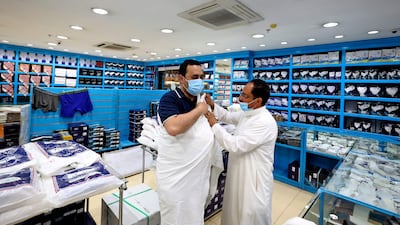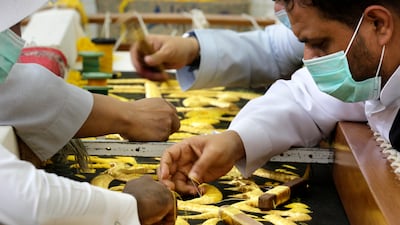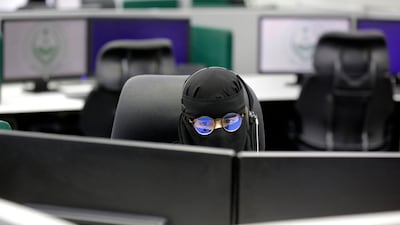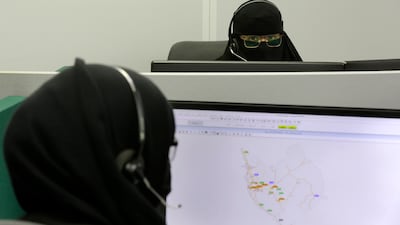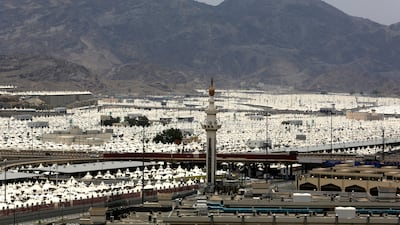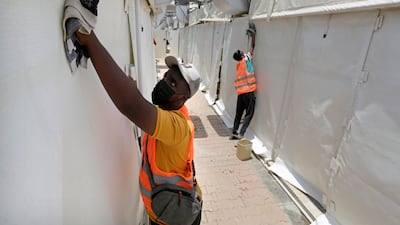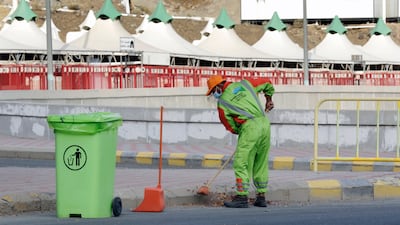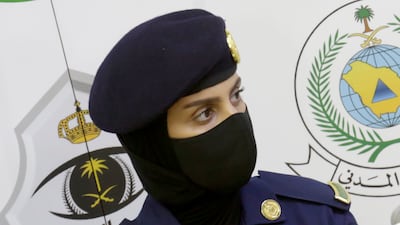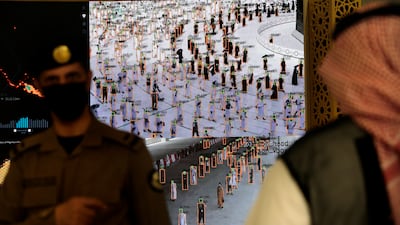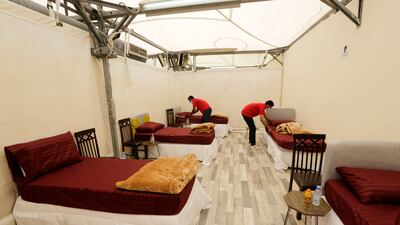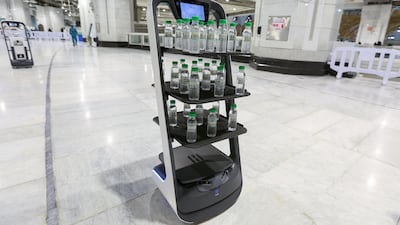Read the latest updates on the Hajj pilgrimage here.
Every year, Saudi Arabia provides free health care to millions of people who arrive for the Hajj pilgrimage, with treatments ranging from simple checkups to dentistry and life-saving heart surgery.
More than 43,000 pilgrims have benefitted from these services in Makkah and Madinah this year, Saudi Arabia's Ministry of Health said.
This year’s Hajj season begins on Wednesday.
The government bears all costs of medical care and treatment, which can cost hundreds of thousands of dollars and include cardiac catheterisations, childbirth and dialysis, among other surgeries.
Efforts to make service provision more efficient include a "holographic doctor," which enables patients to have remote health checks and diagnosis from the SEHA health centre in Riyadh.
A high-tech mobile dental clinic is another edition. Manned by 32 staff, it will be stationed at the Al Haram Emergency Hospital, dedicated to serving pilgrims.
In 2019, prior to the global pandemic, Saudi Arabia provided more than 1,000 free health services to Hajj pilgrims, which included 468 open-heart surgeries and cardiac catheterisations, 93 endoscopies, 1,491 dialysis procedures and 536 other surgeries. In the US, the cost of one cardiac catheterisation without health insurance can be as high as $9,500, while the average cost of dialysis per patient annually in the country is around $46,000.
Life-saving treatment for pilgrims
Saudi Arabian health authorities have announced several dramatic instances where pilgrims' lives were saved.
An emergency medical team saved the life of a Pakistani pilgrim after he suffered a heart attack during the Hajj pilgrimage last year. He was treated by staff at the Heart Centre in King Abdullah Medical City in Makkah, a member of the Healthcare Cluster, Makkah's local health authority.
“He was taken directly to Mina Al Wadi Hospital, and rapid co-ordination took place between the health authorities, as the patient was urgently transferred from the holy site to the emergency department in the medical city,” the Saudi Press Agency said.
"Ambulances, doctors and medical staff are ready and on-site for the upcoming Hajj season," said Dr Yazan Adnan Yassin Ayoub, who is stationed in Arafat. "We are ready to serve the pilgrims this year," he said.
On Saturday, the Saudi Ministry of Health said a specialised team from Makkah’s King Abdullah Medical City successfully performed an emergency cardiac catheterisation procedure to save the life of an Iranian pilgrim.
The health ministry identified the man as Hussain Qasmi Jalmrazy from Isfahan in central Iran. He was taken for emergency treatment after complaining of chest pain on his way to the Grand Mosque in Makkah, Saudi Press Agency reported.
The ministry said the examination results "showed the presence of a blockage of more than two arteries in the heart," upon which the specialists performed the diagnostic catheterisation. Even though the specialists offered to perform an open heart operation free of charge, the patient declined and preferred to go for catheterisation.
Saudi Arabia's King Salman said serving Hajj and Umrah pilgrims has been at the forefront of the kingdom’s priorities since its establishment and still is. "We are proud to continue this mission with the highest competency," he said.
The Cardiac Diseases and Surgery Centre, a member of the Madinah Health Community established to help pilgrims, performed 19 cardiac catheterisation operations within the past ten days, the health ministry announced.
The Health Ministry said the Heart Centre in Madinah received cases from hospitals and the Red Crescent Operations Centre, and was successful in providing them with adequate health care.
"We are very grateful to the government for supporting us and giving us these opportunities," said Dr Mona in Makkah. "It is an honour to serve pilgrims during Hajj, even though we will barely have any rest or time off, I am looking forward to working here as it is my first time to be working during Hajj."
Health ministry steps up efforts
The ministry said 25 hospitals, which are supported by 156 health centres, are well-equipped to serve pilgrims. The ministry has increased the capacity of clinical hospitals to 5,000 beds, the intensive care units are equipped with 1,053 beds and 241 beds have been allocated for patients at risk of heat stroke.
A total of 25,000 qualified health practitioners are on call, the ministry said.
This year, 1,383 nurses are participating in the Hajj season, including 827 women, and 146 are non-Saudis, the Ministry of Health said.
On Friday, Saudi Arabia’s health and humanitarian authorities, along with the Makkah Health Affairs and the Saudi Red Crescent Authority in Madinah, supervised the holy cities to assess their preparation for a safe Hajj.
This included carrying out training scenarios in medical facilities and fire drills.
